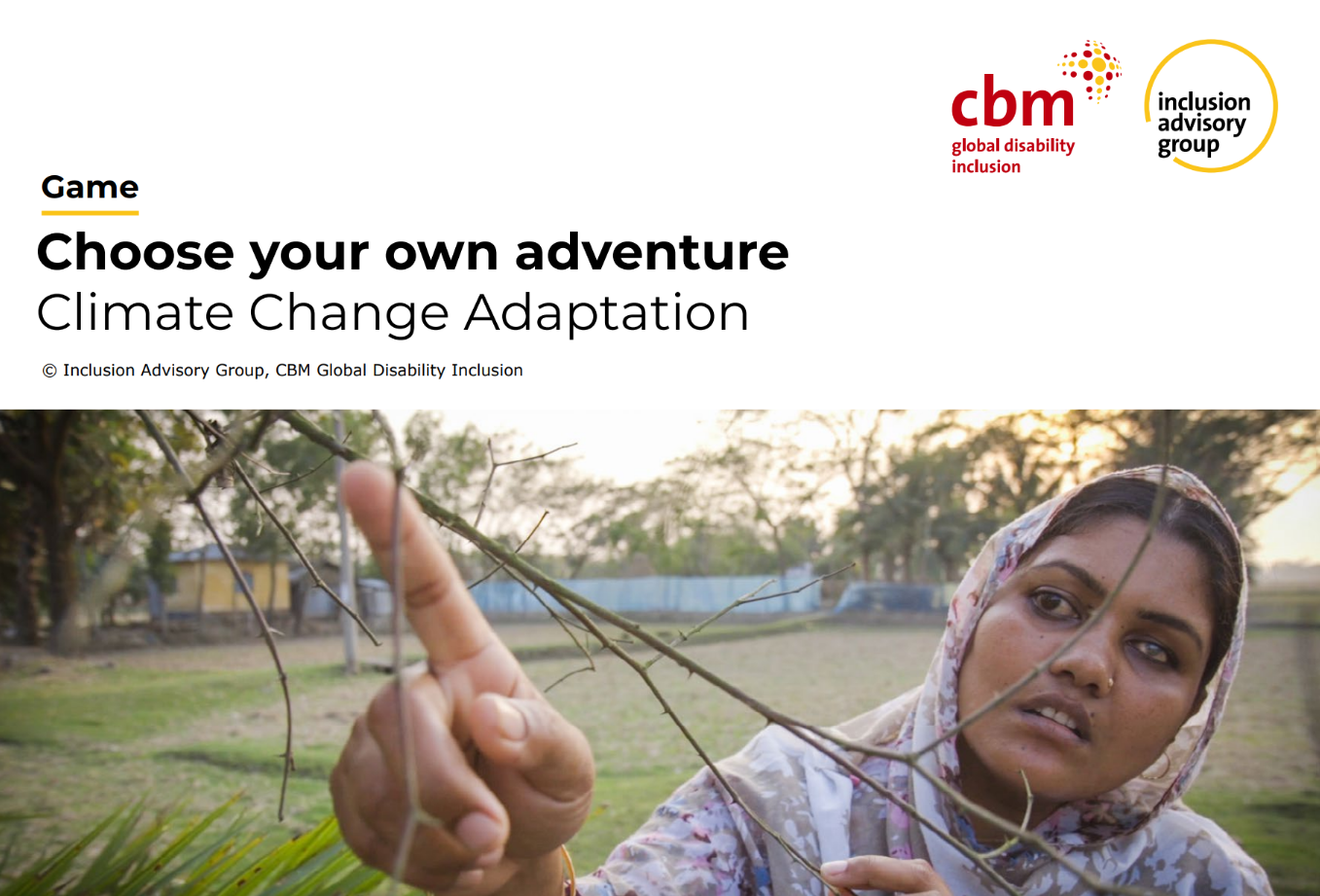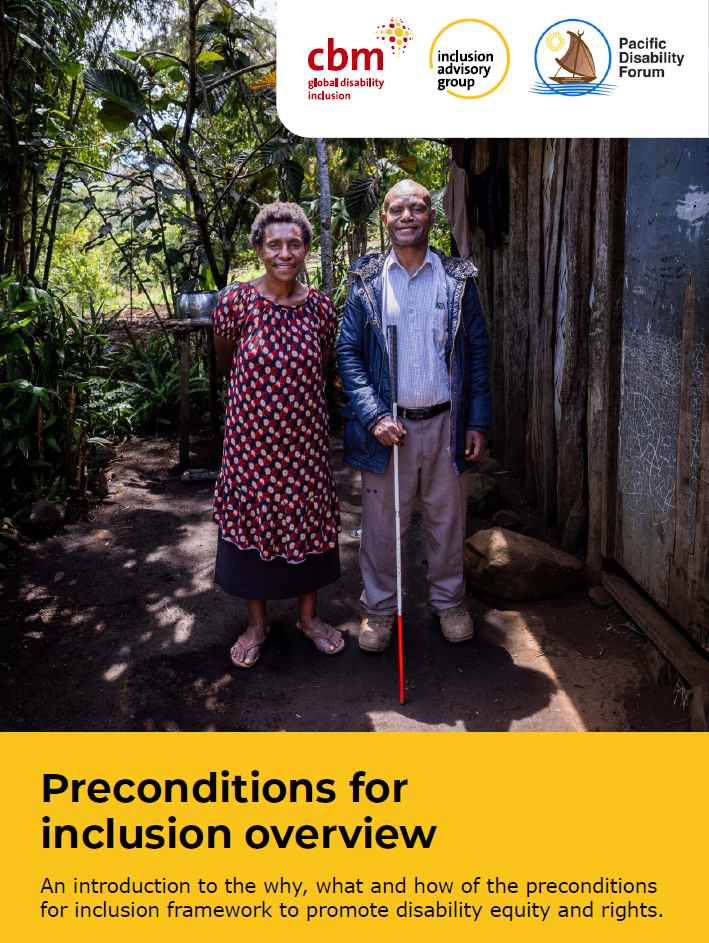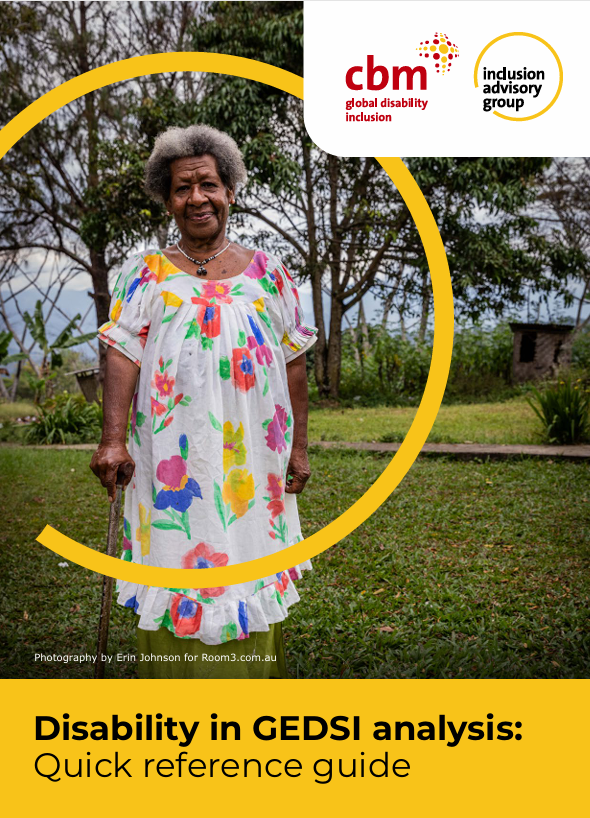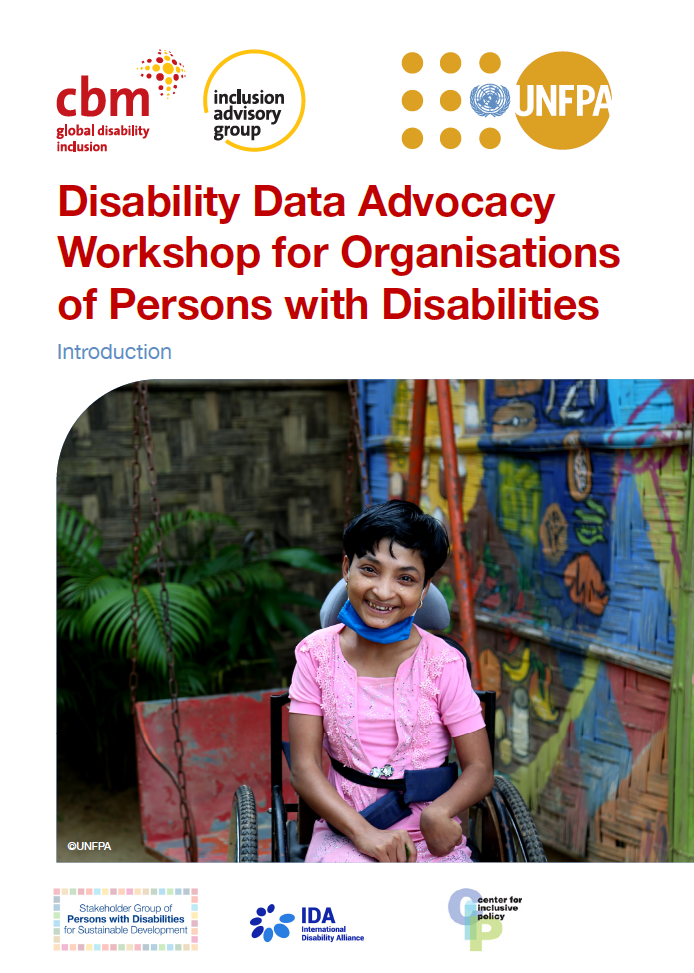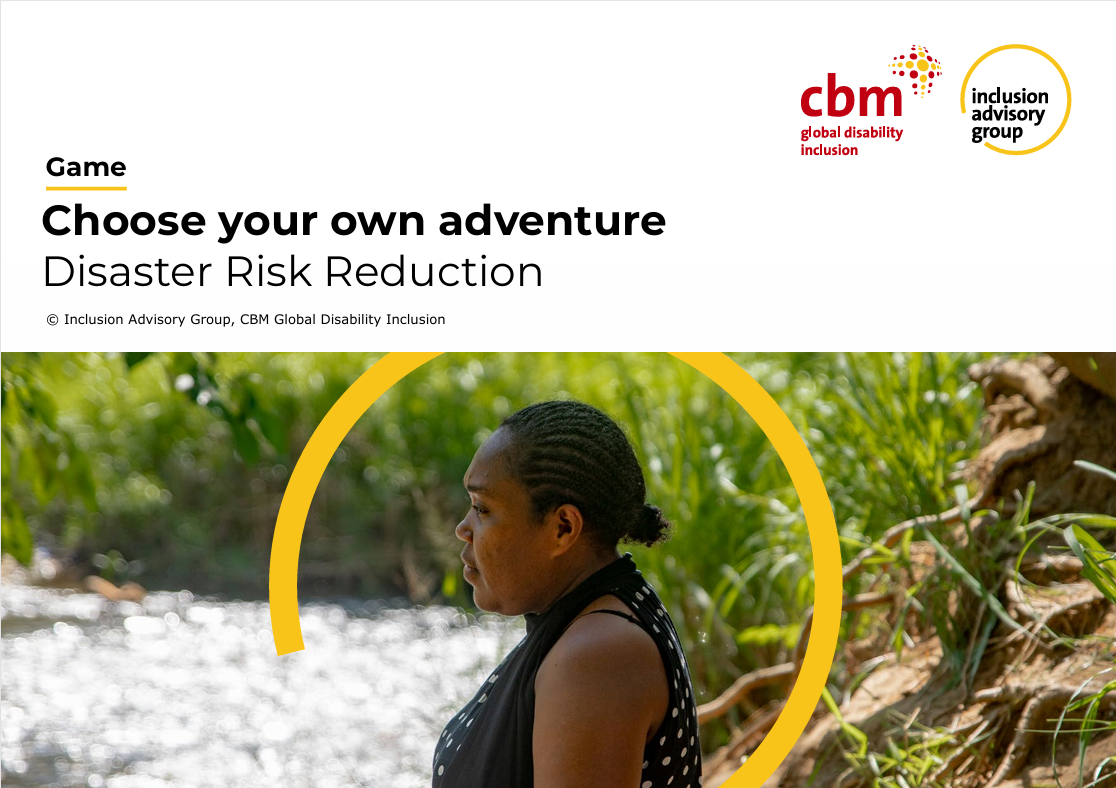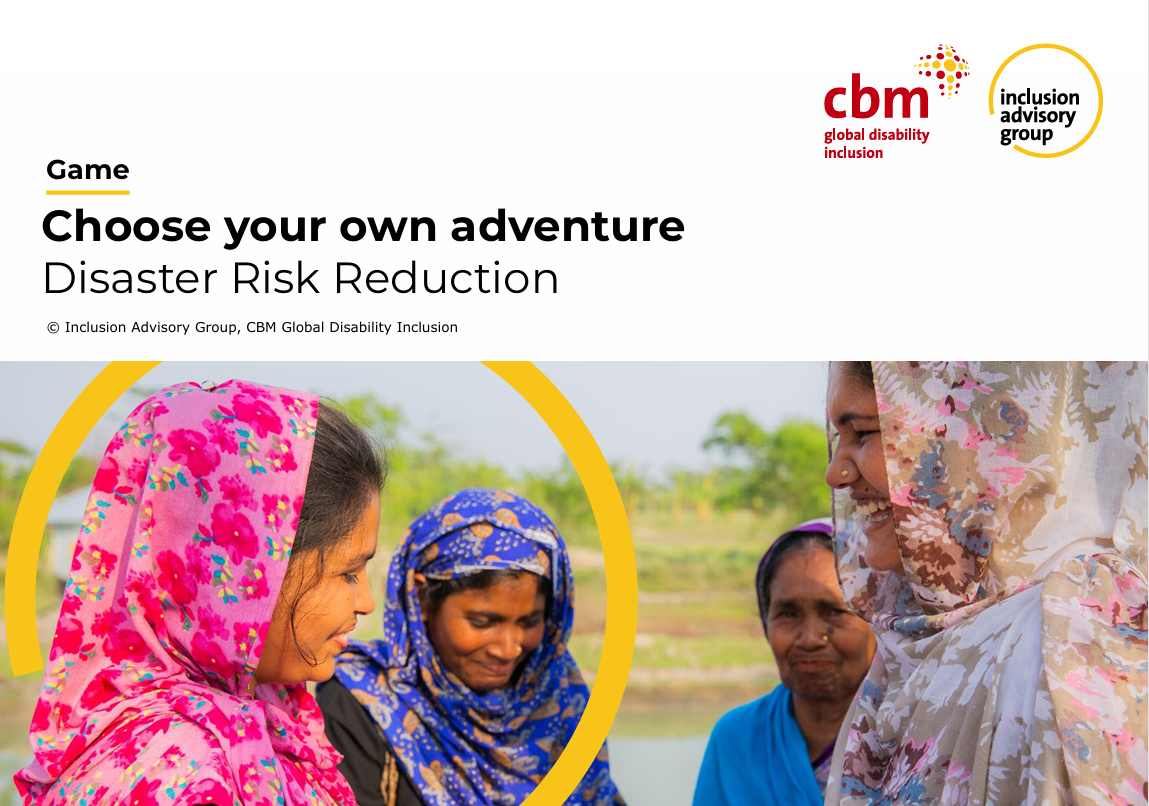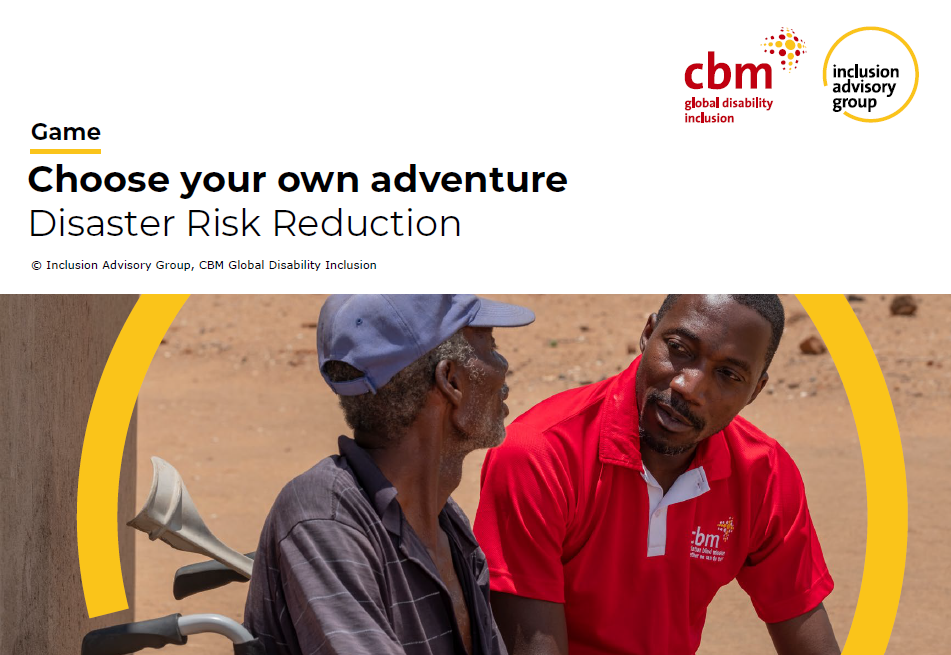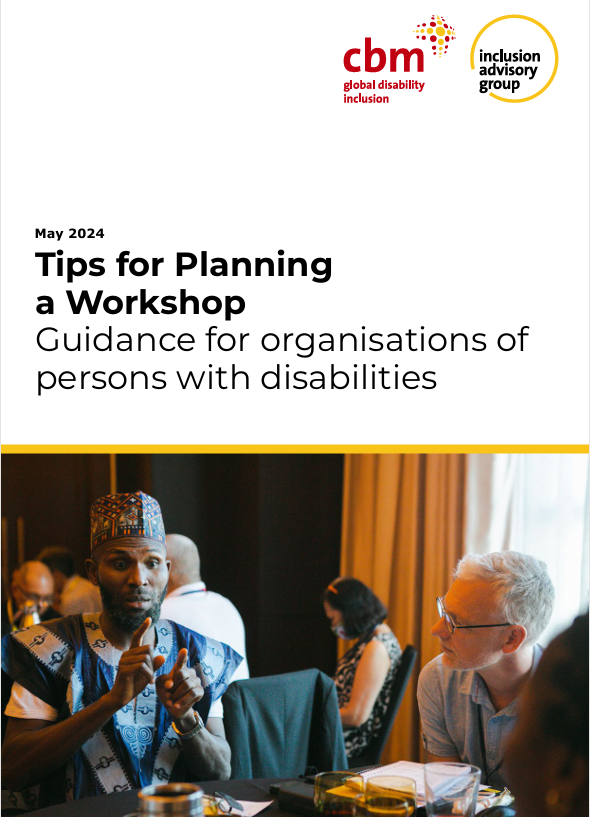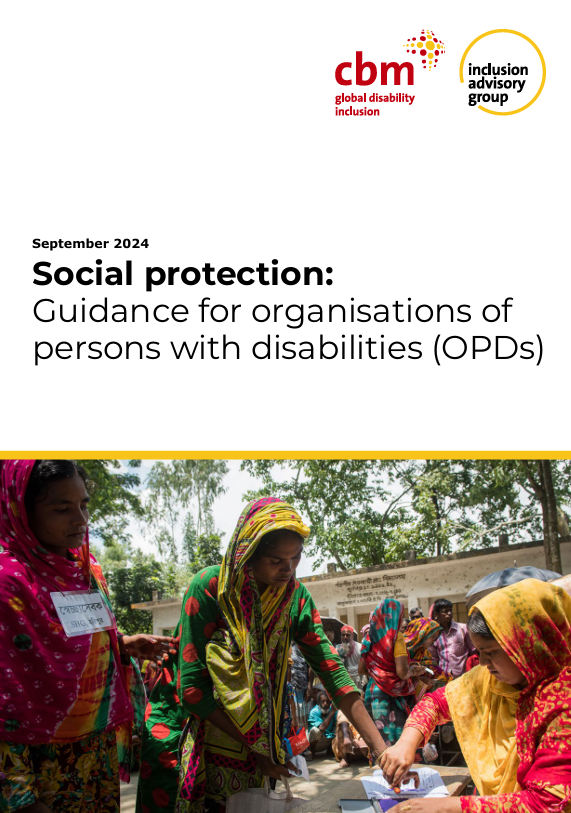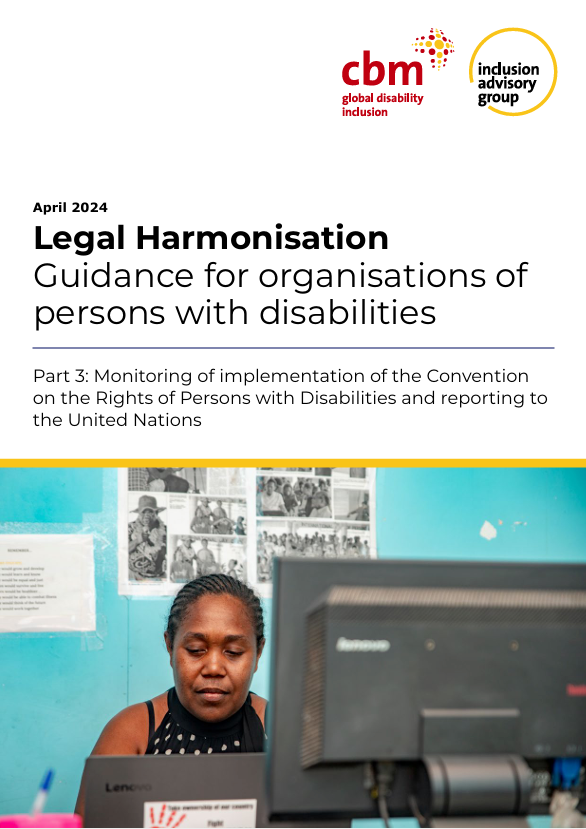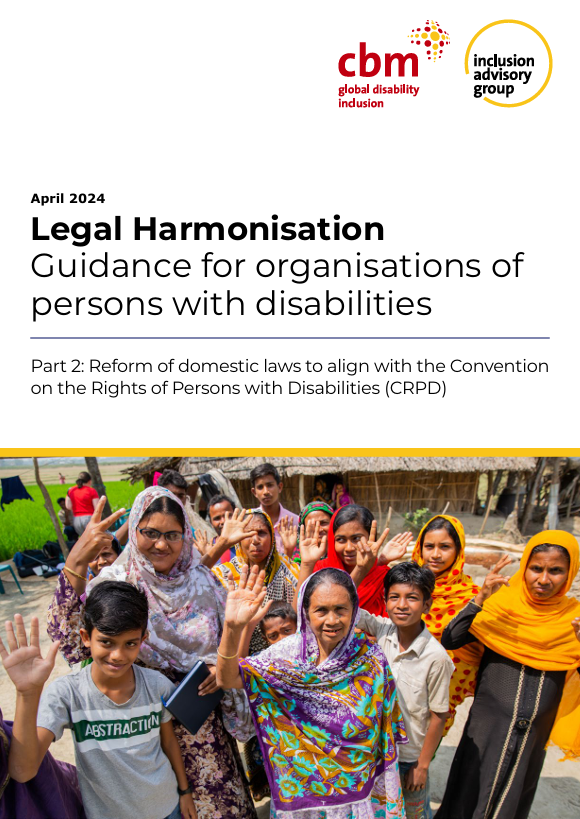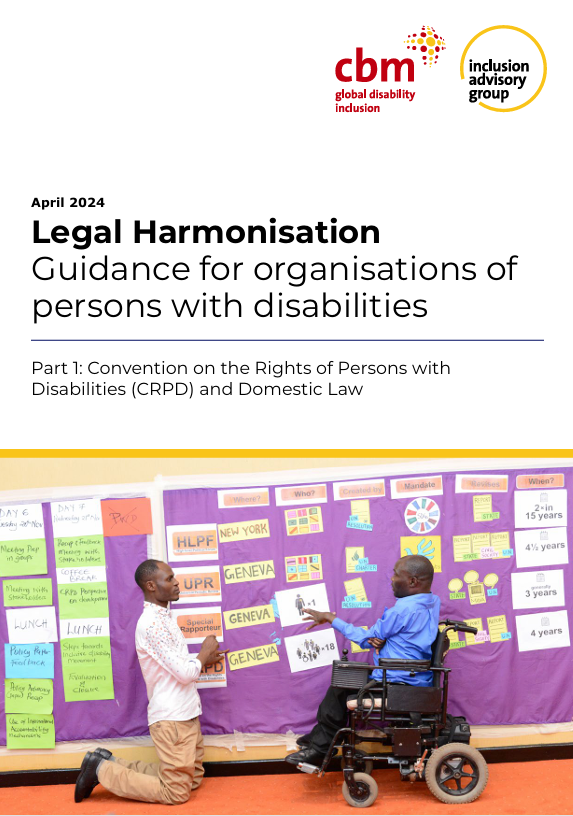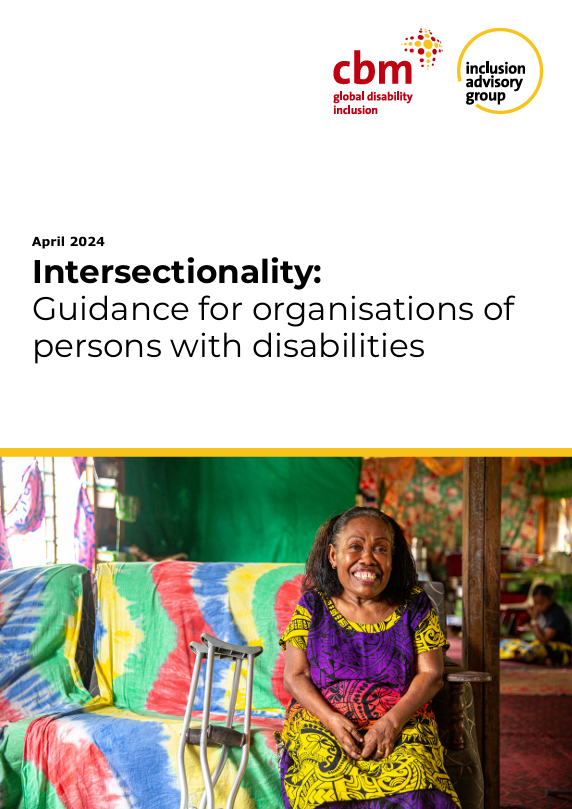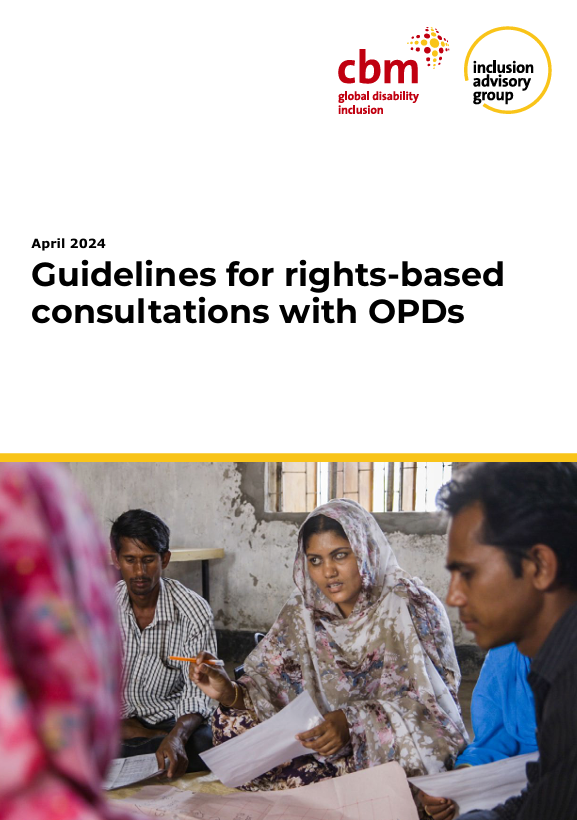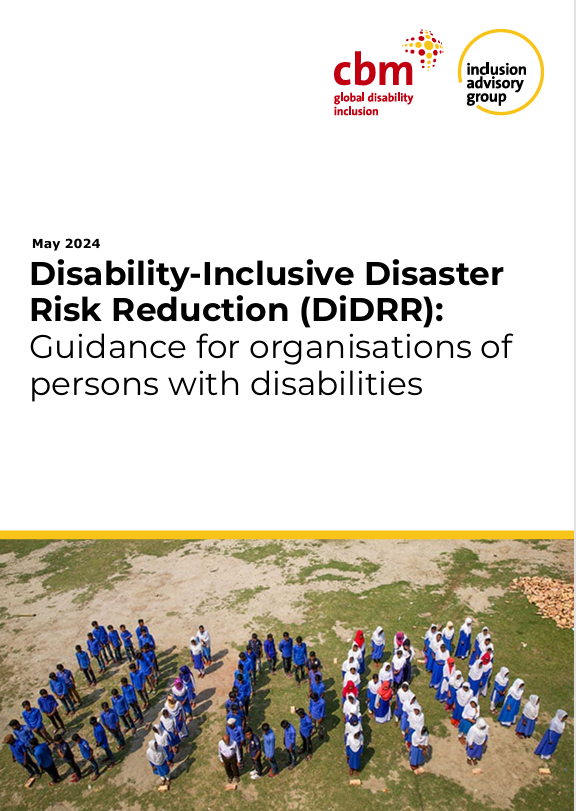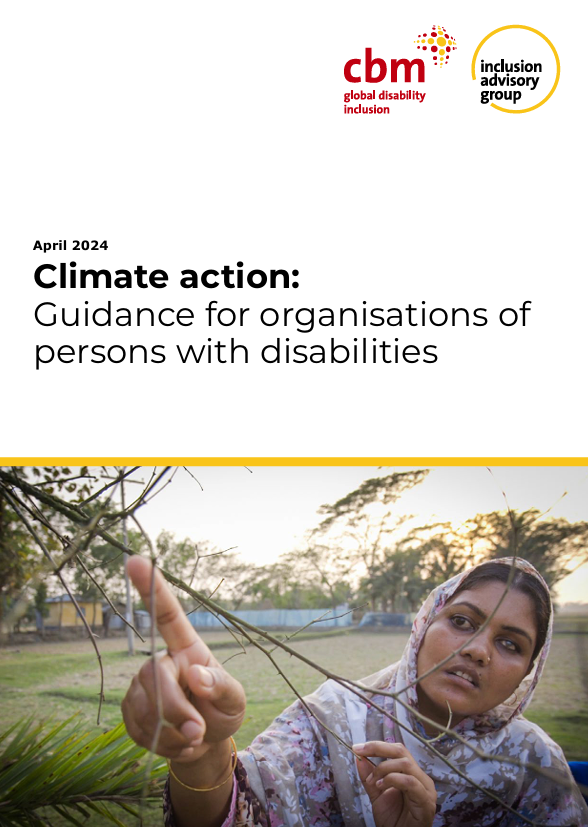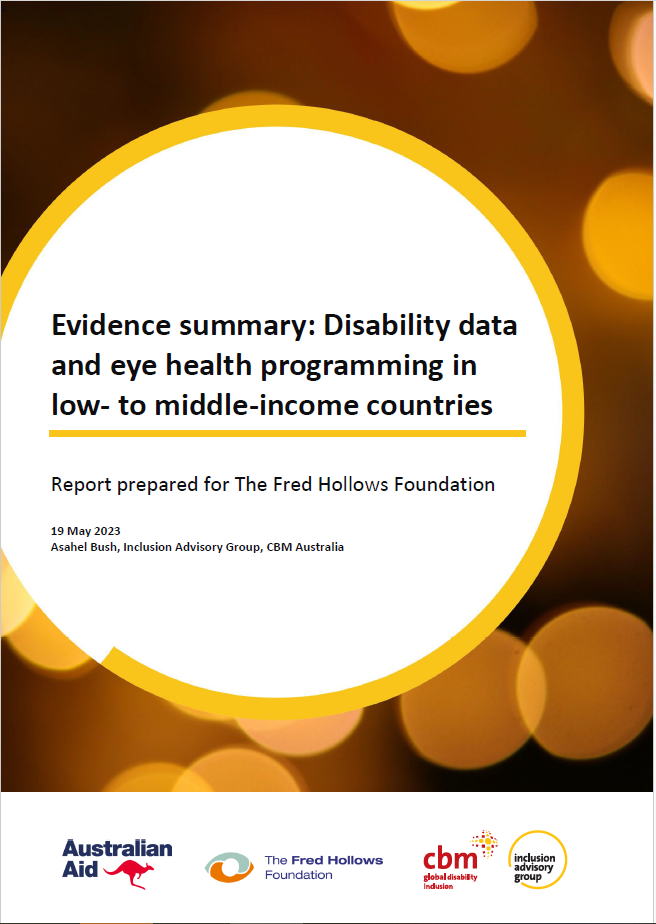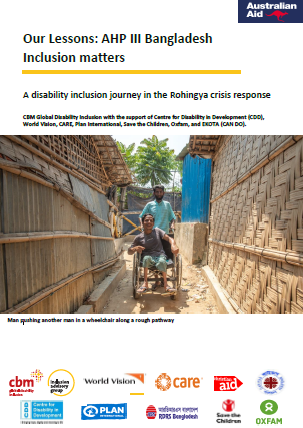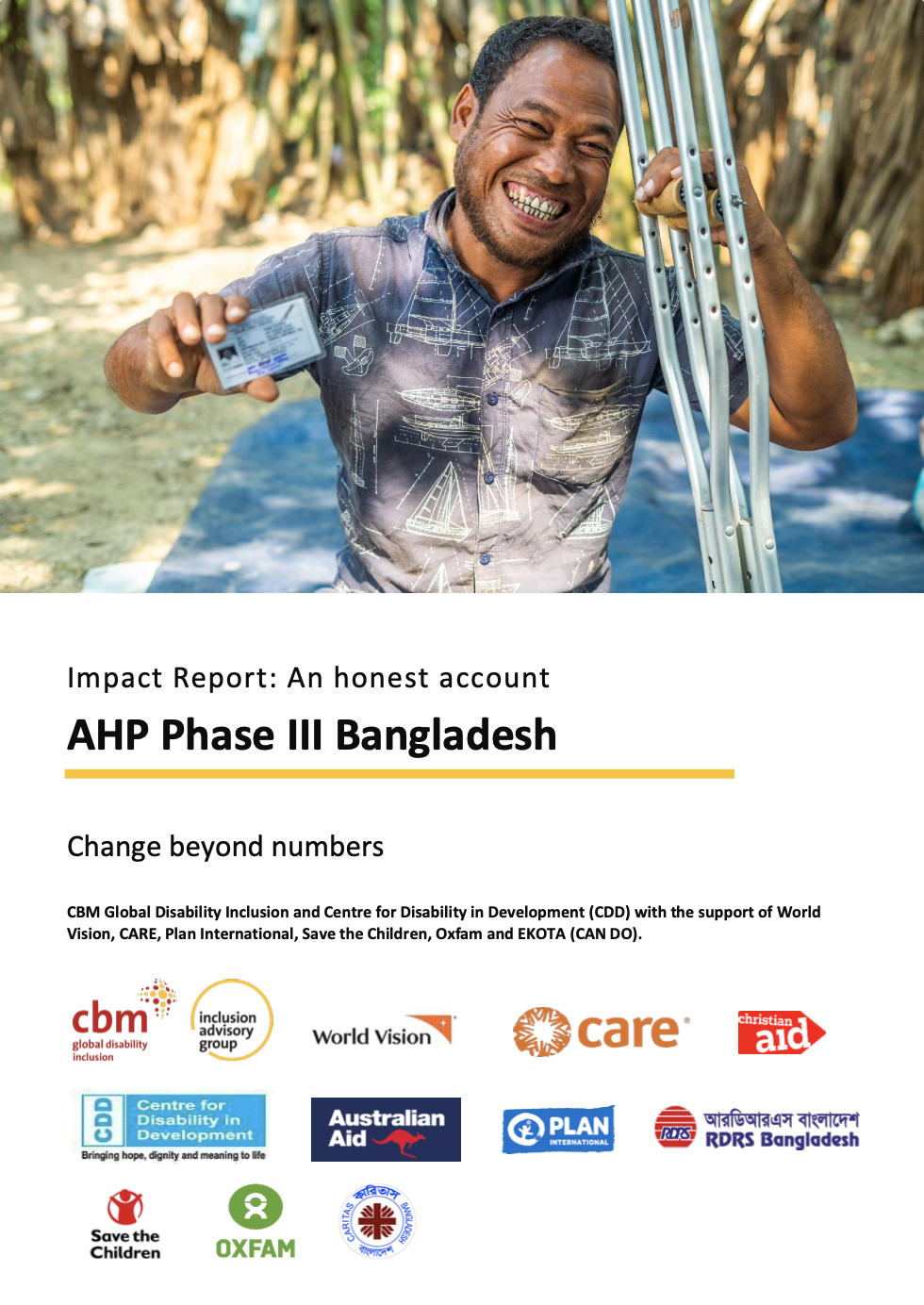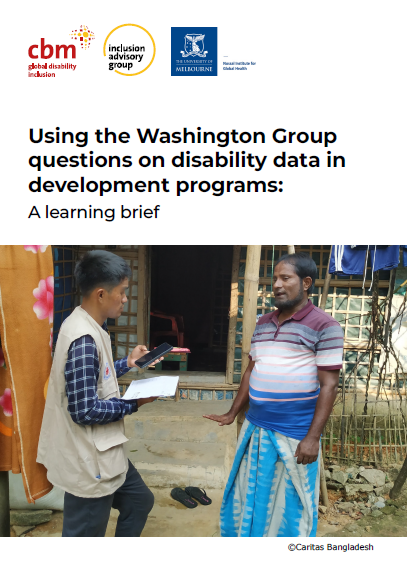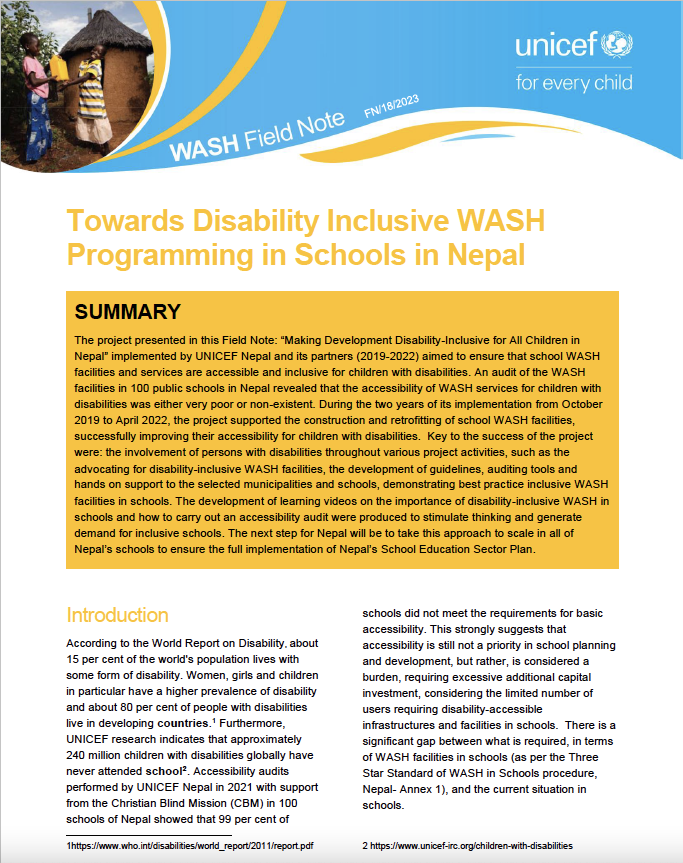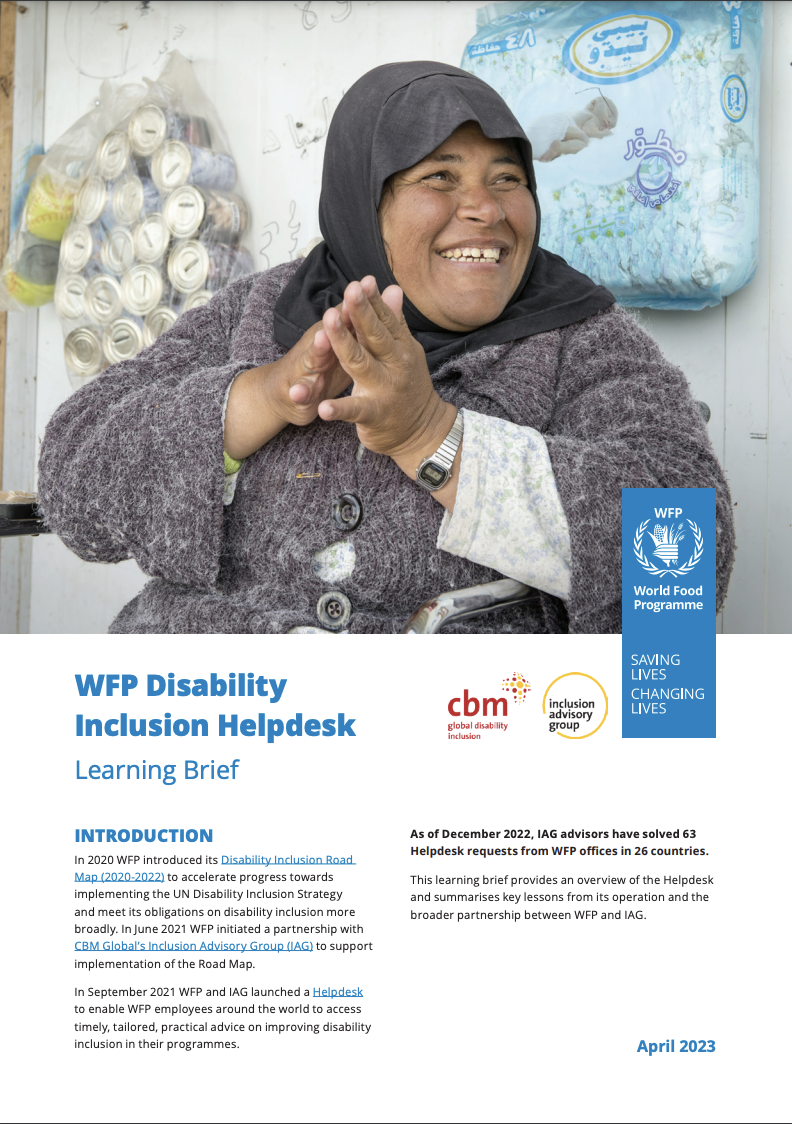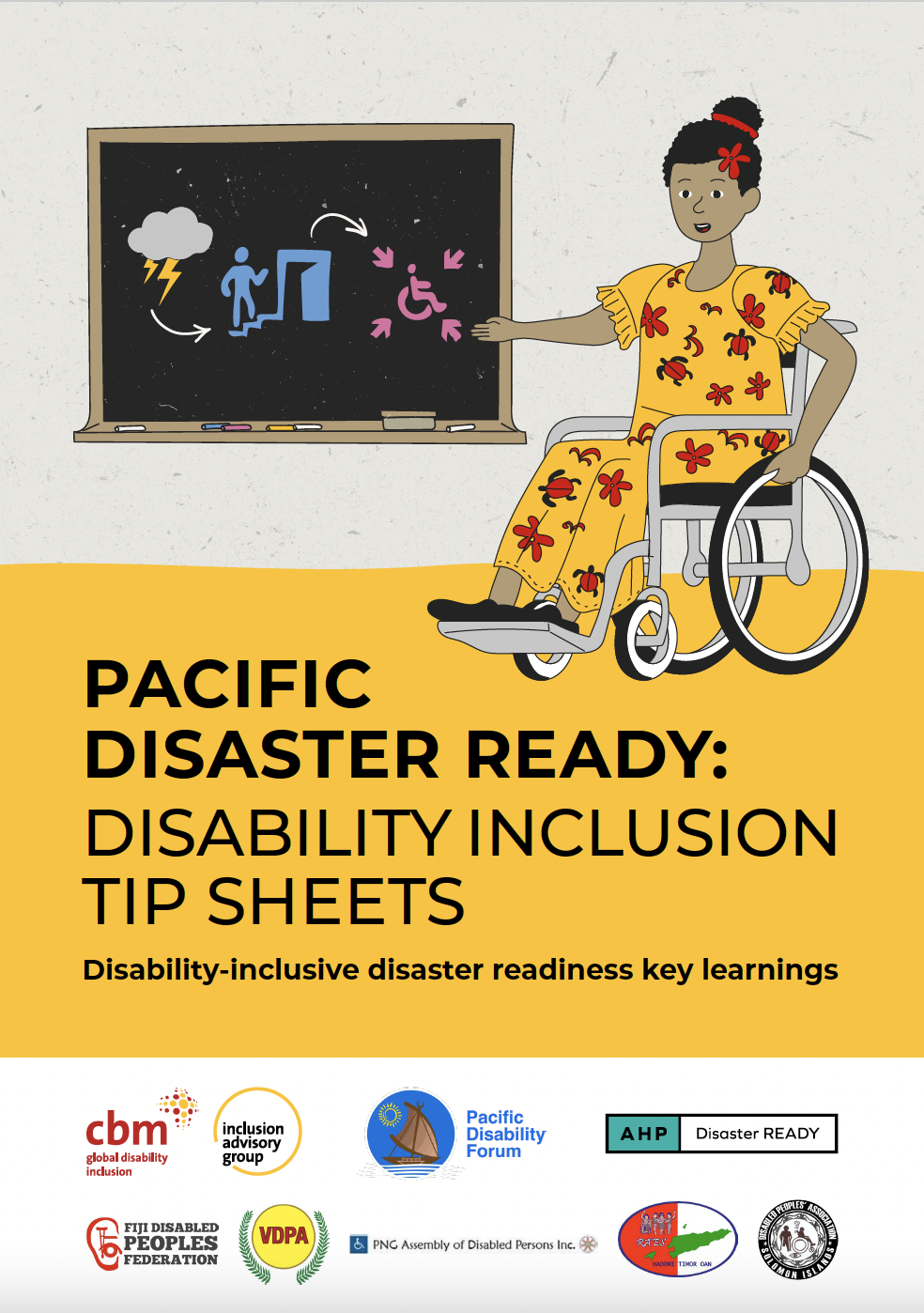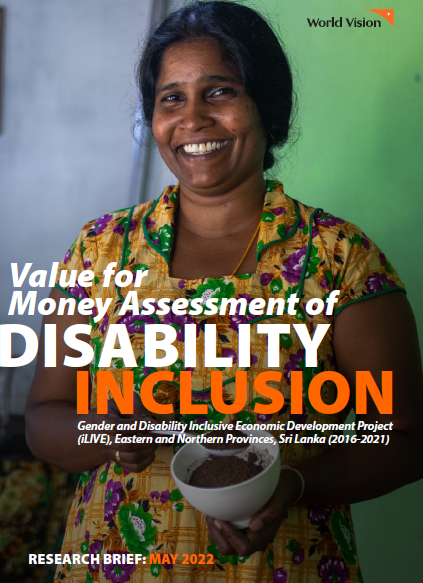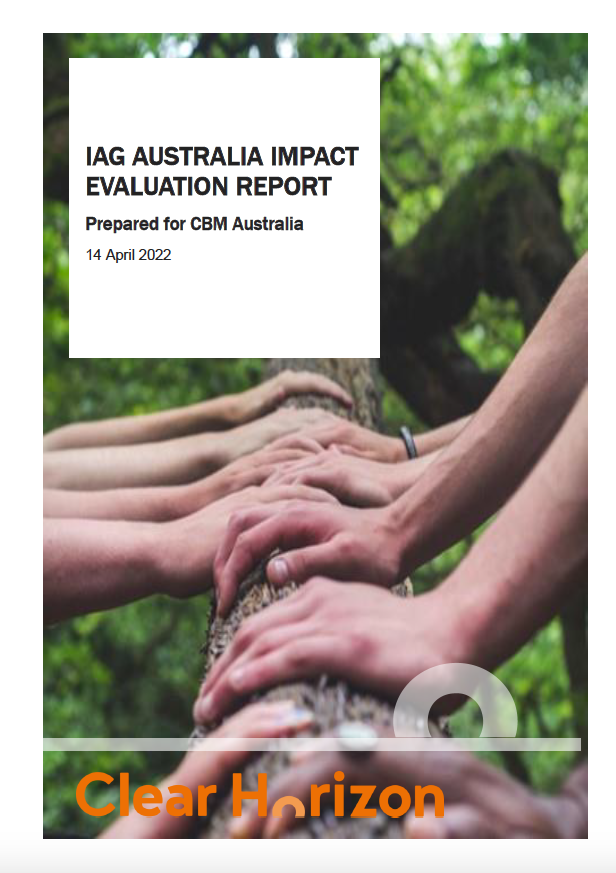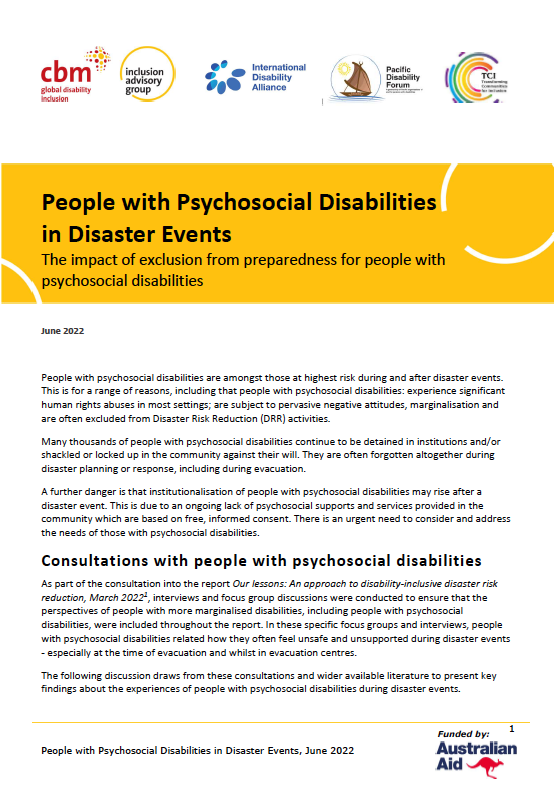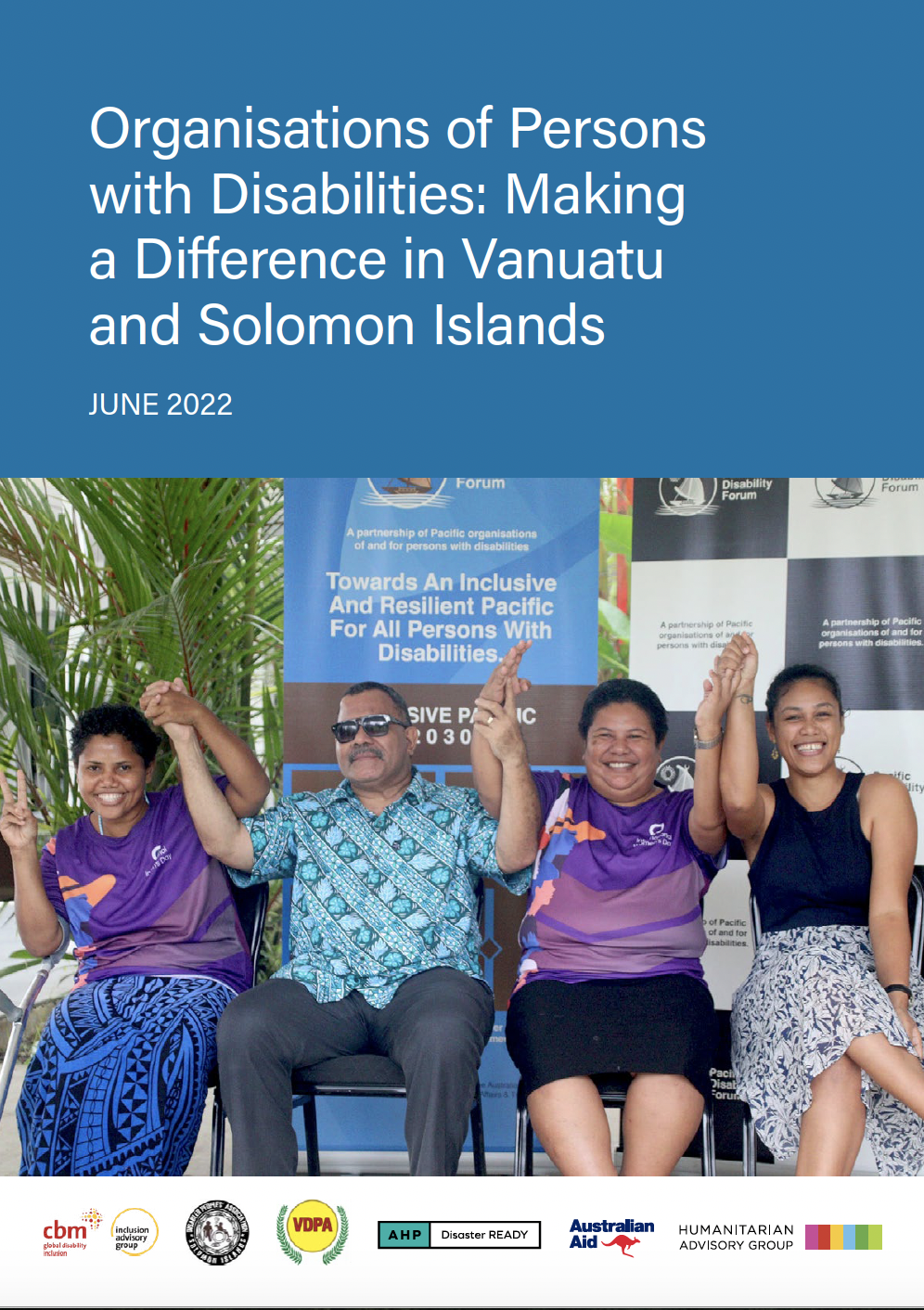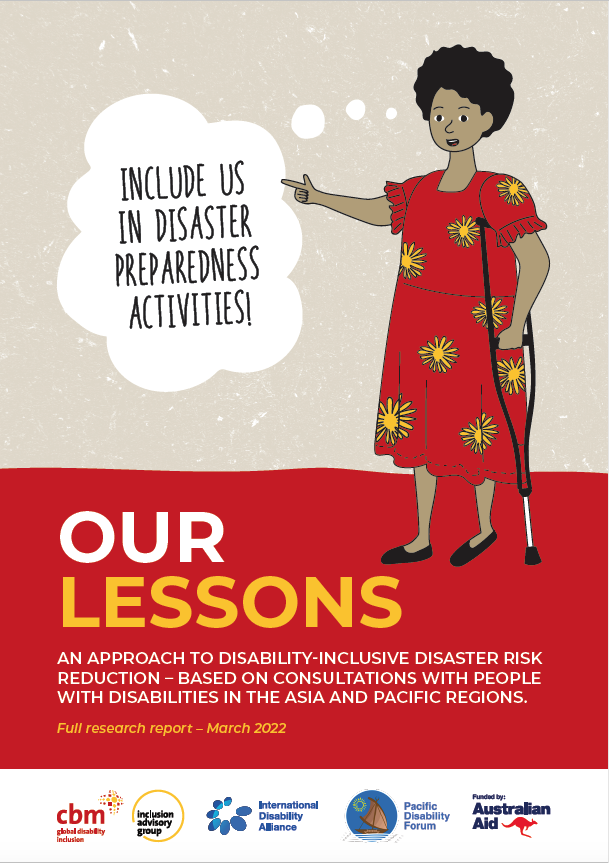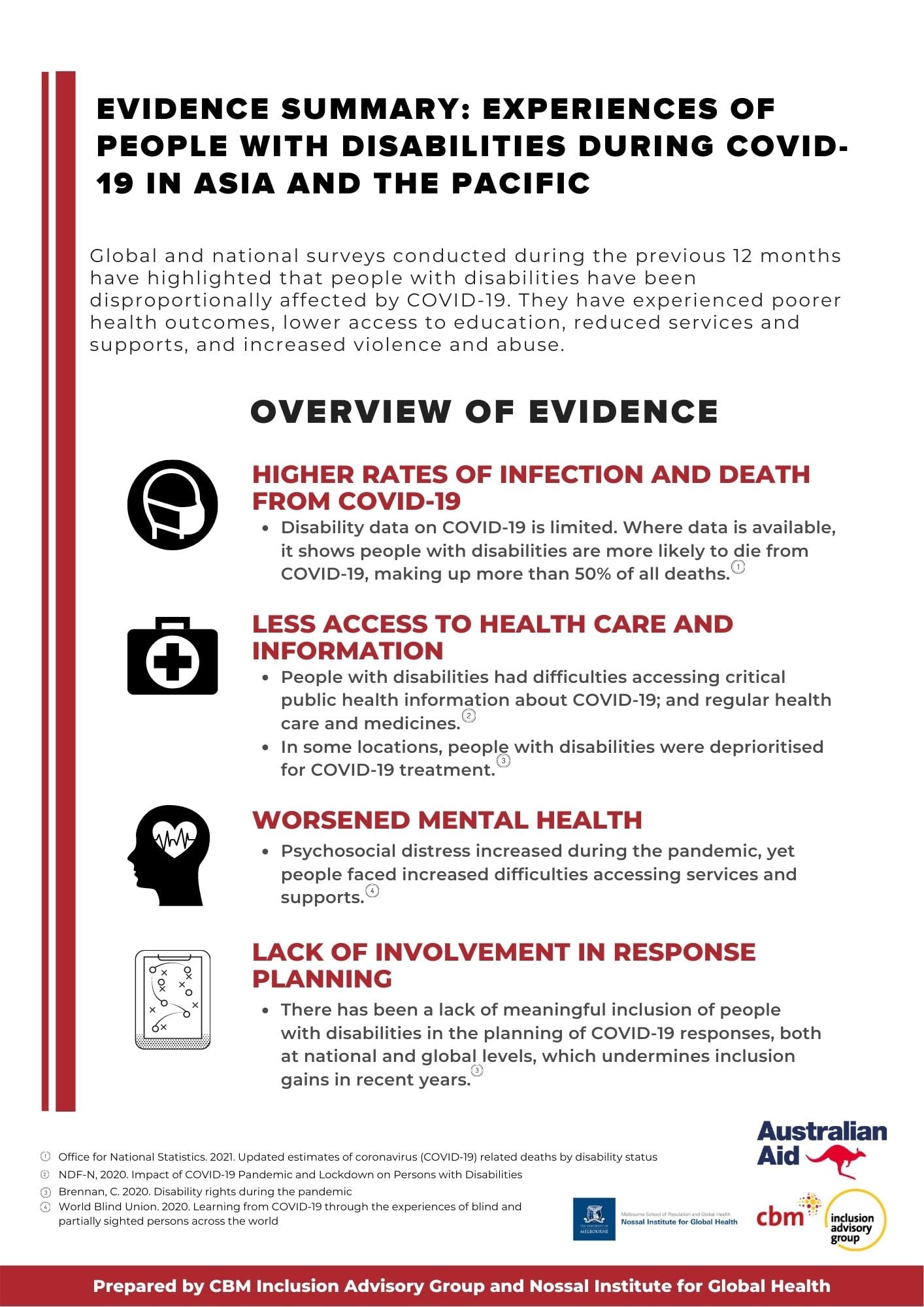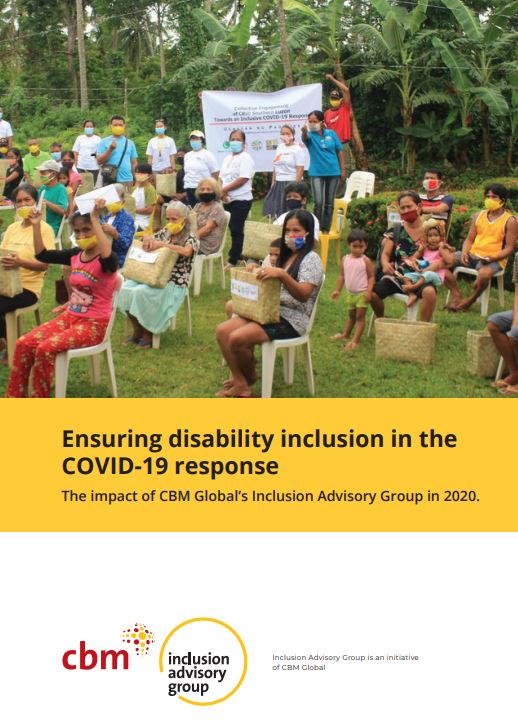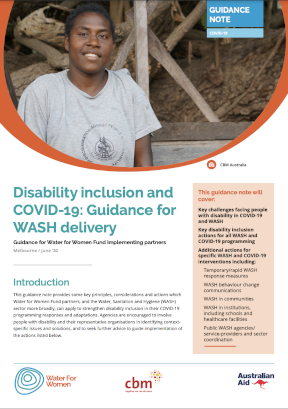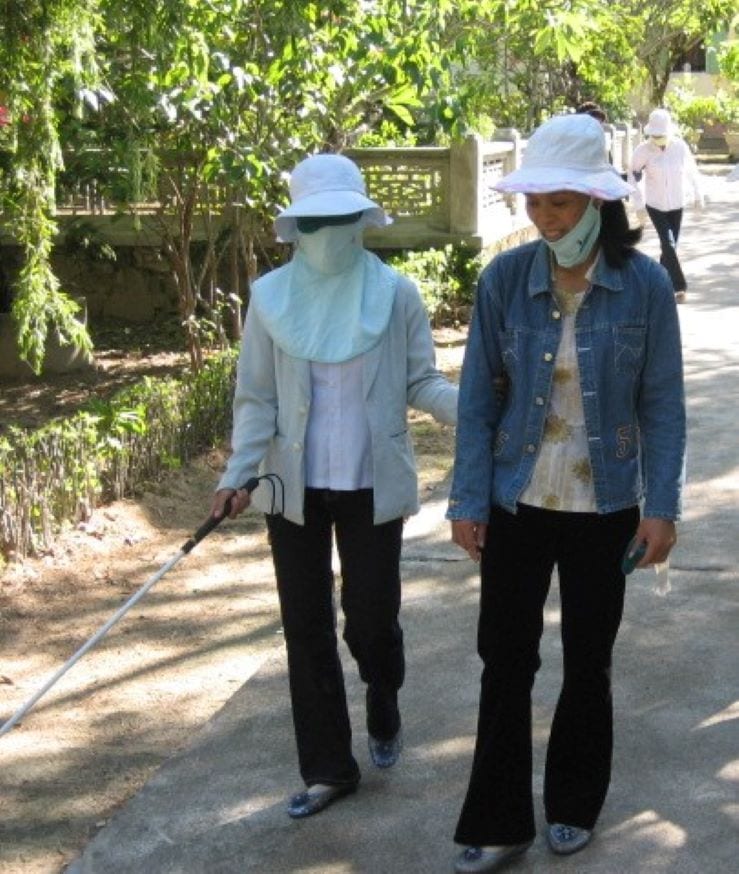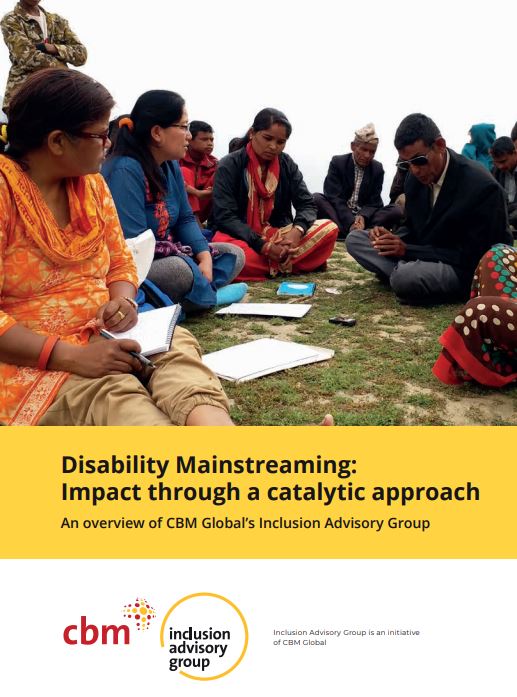Disability movement
These resources are designed predominantly to support the disability movement to influence mainstream partners through advisory work. In addition to guidance and training packages, it includes lessons from our partnerships with the disability for advisory work.
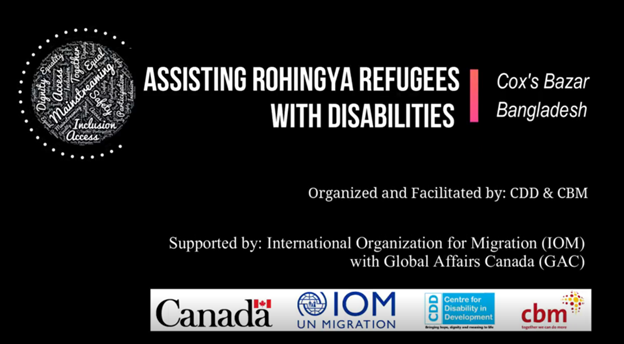 Read more on “Stepping outside the classroom”: Capacity Development with IOM Rohingya Response Staff
Read more on “Stepping outside the classroom”: Capacity Development with IOM Rohingya Response Staff
“Stepping outside the classroom”: Capacity Development with IOM Rohingya Response Staff
This video documents the process taken in developing the training curriculum, demonstrates the main training components and shares reflections of those involved including people with disabilities.
Choose your own adventure Climate Change Adaptation
An interactive game to encourage participants to think about opportunities for DI, and the potential consequences of missing DI opportunities, across the project cycle, for CCA-specific projects. CYOA games are interactive activities designed to encourage participants to think about opportunities for DI, and the potential consequences of missing DI opportunities, across the project cycle. Participants are presented with a series of scenarios and options for decision-making. As they go through the game, they choose an approach to take at each stage and are presented with the outcomes of their decisions. Participants should be encouraged to work through the game several times, making different decisions, to see the end impacts on disability inclusion success.
Preconditions for inclusion overview
The preconditions for inclusion are essential elements that must be established to create an enabling environment for people with disabilities.
Disability in GEDSI analysis: Quick reference guide
This quick reference guide is for Gender Equality, Disability and Social Inclusion (GEDSI) advisors and development practitioners who are undertaking GEDSI analysis and looking to ensure that disability equity and rights are adequately addressed.
Disability Data Advocacy Workshop for OPDs
These workshop materials were developed with the support of UNFPA Asia and the Pacific, in collaboration with the Stakeholder Group of Persons with Disabilities, the International Disability Alliance, the Centre for Inclusive Policy and national and regional organizations of persons with disabilities, including the ASEAN Disability Forum and Pacific Disability Forum. Drawing in part on the Disability Data Advocacy Toolkit, workshop materials have been developed to introduce the basic concepts and skills on disability data to OPDs and their members and to support applying these in the local context.
Choose your own adventure Disaster Risk Reduction (Pacific)
CYOA games are interactive activities designed to encourage participants to think about opportunities for DI, and the potential consequences of missing DI opportunities, across the project cycle. Participants are presented with a series of scenarios and options for decision-making. As they go through the game, they choose an approach to take at each stage and are presented with the outcomes of their decisions. Participants should be encouraged to work through the game several times, making different decisions, to see the end impacts on disability inclusion success. An interactive game to encourage participants to think about opportunities for DI, and the potential consequences of missing DI opportunities, across the project cycle, for DRR-specific projects.
Choose your own adventure Disaster Risk Reduction (Asia)
CYOA games are interactive activities designed to encourage participants to think about opportunities for DI, and the potential consequences of missing DI opportunities, across the project cycle. Participants are presented with a series of scenarios and options for decision-making. As they go through the game, they choose an approach to take at each stage and are presented with the outcomes of their decisions. Participants should be encouraged to work through the game several times, making different decisions, to see the end impacts on disability inclusion success. An interactive game to encourage participants to think about opportunities for DI, and the potential consequences of missing DI opportunities, across the project cycle, for DRR-specific projects.
Choose your own adventure Disaster Risk Reduction (Africa)
CYOA games are interactive activities designed to encourage participants to think about opportunities for DI, and the potential consequences of missing DI opportunities, across the project cycle. Participants are presented with a series of scenarios and options for decision-making. As they go through the game, they choose an approach to take at each stage and are presented with the outcomes of their decisions. Participants should be encouraged to work through the game several times, making different decisions, to see the end impacts on disability inclusion success. An interactive game to encourage participants to think about opportunities for DI, and the potential consequences of missing DI opportunities, across the project cycle, for DRR-specific projects.
Tips for Planning a Workshop Guidance for organisations of persons with disabilities
This guidance note addresses some common questions that OPDs ask about facilitating an advisory workshop. It includes guidance on planning and design, implementation, inclusive facilitation, and feedback mechanisms and provides some tools and templates for OPDs to adapt and use.
Social protection: Guidance for organisations of persons with disabilities (OPDs)
This guidance note describes the key issues on disability inclusive social protection and suggests how OPDs can take action to ensure they are understood and actioned by development and humanitarian actors.
Legal Harmonisation Guidance for organisations of persons with disabilities Part 3
This set of three guidance notes has been designed to clarify the relationship between the Convention on the Rights of Persons with Disabilities (CRPD), and domestic laws. Part 1 is about the CRPD and domestic law; Part 2 relates to law reforms to align with CRPD; and Part 3 relates to monitoring and reporting under CRPD.
Legal Harmonisation Guidance for organisations of persons with disabilities Part 2
This set of three guidance notes has been designed to clarify the relationship between the Convention on the Rights of Persons with Disabilities (CRPD), and domestic laws. Part 1 is about the CRPD and domestic law; Part 2 relates to law reforms to align with CRPD; and Part 3 relates to monitoring and reporting under CRPD.
Legal Harmonisation Guidance for organisations of persons with disabilities Part 1
This set of three guidance notes has been designed to clarify the relationship between the Convention on the Rights of Persons with Disabilities (CRPD), and domestic laws. Part 1 is about the CRPD and domestic law; Part 2 relates to law reforms to align with CRPD; and Part 3 relates to monitoring and reporting under CRPD.
Intersectionality: Guidance for organisations of persons with disabilities
This guidance note details the key considerations related to how disability and other identities can combine to create unique experiences of exclusion. It suggests action points for OPDs to ensure that intersectionality is understood considered by development and humanitarian actors, so that groups of people at higher risk of exclusion are not left behind in policy and programming.
Guidelines for rights-based consultations with OPDs
This guidance note has been produced for OPDs to use with development and humanitarian organisations who may wish to consult with them on disability inclusion. It details key considerations for partners and clients to ensure they achieve effective and meaningful OPD engagement.
Disability-Inclusive Disaster Risk Reduction (DiDRR): Guidance for organisations of persons with disabilities
This guidance note describes the key issues on disability inclusive DRR and suggests how OPDs can take action to ensure they are understood and addressed by development and humanitarian actors.
Climate action: Guidance for organisations of persons with disabilities
This guidance note describes the key issues on disability inclusive CCA and suggests how OPDs can take action to ensure they are understood and addressed by development and humanitarian actors.
Advisory services resource pack for OPDs: Overview of the package
This set of eight resources has been developed to support OPDs engaging in advisory work. The suggestions and tools can be applied and adapted to suit different countries and contexts, and can be complemented by coaching, mentoring, peer exchange and opportunities to learn from experience.
Preconditions for inclusion: Guidance for organisations of persons with disabilities
This guidance note describes the key components of four key preconditions to inclusion, and how OPDs can take action to ensure they are understood and addressed by development and humanitarian actors.
Disability Data Evidence Summary 2024 PDF
In 2023, The Fred Hollows Foundation (The Foundation) engaged CBM Global's Inclusion Advisory Group (IAG) to gather evidence and provide practical recommendations on collecting and using disability data within eye health programs. Although there were well-established tools and guidance on disability data within population surveys and development programs, clear guidance on their application and rollout in the eye health sector was unavailable.
AHP III Bangladesh: A disability inclusion journey in the Rohingya crisis
This report documents achievements and lessons learned and presents recommendations to progress disability inclusion further in the Rohingya response and for the humanitarian sector at large.
AHP Phase III Bangladesh Impact Report: An honest account
A new report seeking to reflect the lived experience of people with disabilities in the Rohingya AHP Phase III Response, their stories and feedback on what has changed for them, and the continued barriers they face.
Using the Washington Group questions on disability data in development programs: A learning brief
The learning brief offers practical guidance with suggested approaches to overcoming common issues and concerns, with a focus on the Washington Group questions.
Promoting Disability Friendly WASH in Schools in Nepal
CBM Global’s Inclusion Advisory Group worked with UNICEF Nepal on a project to ensure that school WASH facilities and services were accessible and inclusive for children with disabilities.
WFP Disability Inclusion Helpdesk Learning Brief
This learning brief provides an overview of the Helpdesk and summarises key lessons from its operation and the broader partnership between WFP and IAG.
Pacific Disaster Ready: Disability inclusion tip sheets
The Pacific Disaster Ready Tip Sheets are a suite of documents and includes key messages and talking points for different sectoral and thematic issues drawing on the learnings from the past four and a half years of the Pacific Disaster Ready project.
Value for Money Assessment of Disability Inclusion
Our Inclusion Advisory Group worked with World Vision in Sri Lanka, and their research shows the value of investing in disability inclusion.
Impact Evaluation Report
An independent evaluation of the work of Australia’s Inclusion Advisory Group shows that the team effectively supports governments, multilaterals and NGOs to better address disability inclusion in their programs.
People with Psychosocial Disabilities in Disaster Events
A report on the impact of exclusion of people with psychosocial disabilities from disaster preparedness.
Organisations of Persons with Disabilities: Making a Difference in Vanuatu and Solomon Islands
A report exploring the roles and impact of OPDs in Vanuatu and Solomon Islands and identifying key challenges and enablers constraining and supporting OPDs’ contributions to the disaster preparedness and response sector.
Our Lessons: disability-inclusive disaster risk reduction report
An approach to disability-inclusive disaster risk reduction based on consultations with people with disabilities in the Asia and Pacific regions.
Evidence Summary: Experiences of People with Disabilities During COVID-19 in Asia and the Pacific
Global and national surveys have highlighted that people with disabilities have been disproportionally affected by COVID-19.
Inclusion Advisory Group: Impact Report 2020
This overview showcases the work of our Inclusion Advisory Group in 2020.
Disability inclusion and COVID-19: Guidance for WASH delivery
This guidance note from our Inclusion Advisory Group provides some key principles, considerations and actions.
Organisational Engagement on Disability Inclusion tool
This tool was developed with ANCP Partner Organisations to support development organisations to capture a ‘snap shot’ of how they are engaging with disability inclusion, to assess what areas need further work, and to assist action planning.
Disability Mainstreaming: Impact through a catalytic approach
This report gives an overview of the work of our Inclusion Advisory Group Australian team from 2014 to 2019.

